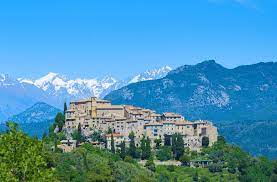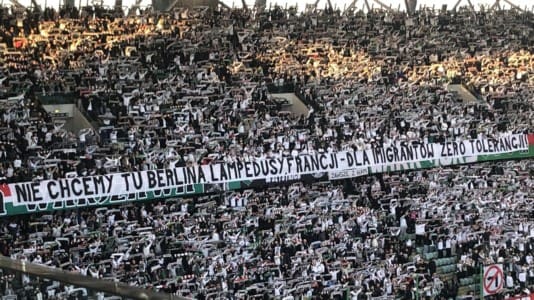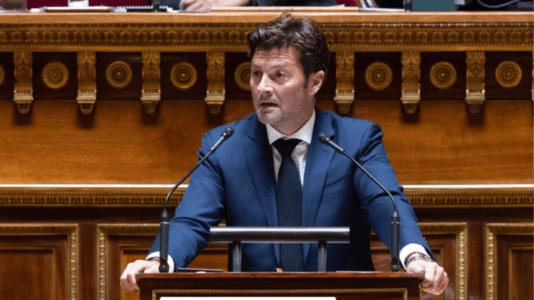A local council in France has been criticized by conservatives after spending €2.2 million on two properties located in a rural village overlooking the French Alps — both of which are to be used to house migrants.
Leaders of the local right-wing Reconquête party, Philippe Vardon and Jean Moucheboeuf, distributed a leaflet to residents of Carros, near Nice, last week after learning of the council’s plans to acquire the properties owned by the diocese of Nice.
The properties, located in the commune populated by just 12,000 people, enjoy land of around 16,700 square meters. The houses will be used to accommodate unaccompanied minors, and the council defended the move by explaining it had been renting the properties since 2017 and that the purchase would save the municipality money in the long term.
Critics, however, argued that it is evidence of local leaders’ intentions to persist in favor of mass immigration despite growing discontent across the country at the unsustainability of such a policy; they also hit out at Éric Ciotti, president of the center-right Les Républicains (LR) party who also heads up the finance committee of the local council.
“This is new proof of sustaining a policy of welcoming unaccompanied minors and that Mr. Ciotti supports the government’s lax migration policy!” Philippe Vardon said.
Ciotti hit back at his critics, calling the leaflet published by Reconquête “despicable” and circulated by “people who are just as despicable.” He insisted that he remains opposed to mass immigration, despite signing off on the extravagant purchase to ensure that receiving the numbers of new arrivals seen recently in France and wider Europe remains sustainable in the future.
“The majority of these minors arrive from the Ivory Coast. We should be able to put them on a plane to send them back. We have to change that!” Ciotti told a local council plenary.
Mayor of Carros Yannick Bernard also hit out at those criticizing the local council and asked what they would do differently in light of services in the area becoming saturated following the recent influx of illegal migrants.
“We are forced to become subcontractors of state inaction. But to those waving the red rag, what do you have to offer?” he asked.
[pp id=49535]
The two properties aren’t the only real estate being acquired by the council to continue facilitating mass immigration. Earlier this month, the same department concluded a draft agreement with a former holiday center in the locality to accommodate migrants.
“We don’t look away,” insisted President of the Alpes-Maritimes Department Charles-Ange Ginésy. “This is a problem that will continue to increase, and it requires a political response at the highest level.”
The French government’s decision to relocate migrants from major cities to rural areas across the country has caused chaotic scenes as local councils struggle to find room for the influx of new arrivals and have experienced social tensions due to a lack of integration.
Data published by France’s national statistics bureau (INSEE) back in March revealed that 10.3 percent of the population are now immigrants, amounting to 7 million people. This figure remains higher than the average in major French cities including Paris (20 percent), Lyon (13 percent), and Marseille (11 percent).
[pp id=71825]
In the wider Parisian suburbs in the Ile-de-France, immigrants comprise 37 percent of the population.
With public services struggling, the French government sought to distribute a number of new arrivals to the French countryside, in part to “clean up” Paris ahead of hosting the current Rugby World Cup and the Summer Olympics next year.
Several local leaders opposed the plans, and a number of local resident groups across the country have staged protests against their locality receiving a migrant quota from the state.






